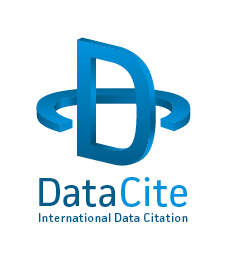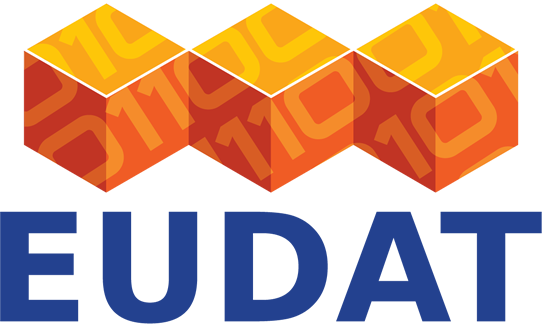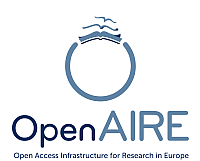Several projects and initiatives are working in similar or related areas as PaNdata. Some projects aim to provide services to parts of the PaNdata user communities, and others as well as PaNdata are developing tools of mutual interest. PaNdata is hence highly interested to exploit synergies, to harmonize developments and services, and to utilize existing infrastructures and services whenever feasible. The active participation in the EiroForum driven work on Federated Identity Management or the organization of a series of harmonization workshop are just two examples for the efforts undertaken by PaNdata to iniitiate and enhance co-operations in various fields. Below we provide a - non-exhaustive - list of projects and initiatives PaNdata is co-operating with, or aims to contribute by knowledge exchange or active participation in related events.
 Research Data Alliance
Research Data AllianceThe Research Data Alliance (RDA) is the driving force to enable a global data infrastructure. RDA is supported by NIST, NSF, EC (via iCORDI) and the Australian National Data Service.
Areas of common interest: All aspects of data infrastructures.
Level of interaction: Participation in the proposed RDA working groups.
 IUCr
IUCrThe International Union of Crystallography represent the presumably largest user community. The community has an outstanding history in data curation, preservation and sharing.
Areas of common interest: Data and meta data standards, deposition and identification of data sets.
Level of interaction: Harmonization of CIF and NeXus data format standards.
 BioStruct-X
BioStruct-XThe aim of BioStruct-X is to provide a consolidated platform that brings together all relevant methods in structural biology – creating a single gateway to Europe’s leading European synchrotron facilities and associated infrastructures, ultimately to the benefit of the overall user community.
Areas of common interest: identity management, proposal submission, user communities, application development
Level of interaction: harmonization meetings
 CRISP
CRISPCRISP is a partnership which builds collaborations and creates long-term synergies between research infrastructures on the ESFRI Roadmap in the field of physics, astronomy and analytical facilities to facilitate their implementation and enhance their efficiency and attractiveness. The common intent is to provide a service of the highest quality; sensitive to the needs of a broad range of user communities within the European Research Area; responsive to diverse and changing demands in a highly dynamic environment; and directed towards ensuring that the large investments made at the national and international levels result in significant progress in science for the benefit of society..
Areas of common interest: identity management, high speed data handling, HDF5, data catalogues, provenance
Level of interaction: harmonization meetings, PaNdata & CRISP events
DAITF aims to create an open forum for discussing and agreeing on data- related standards, APIs, policy rules, data interoperability mechanisms and so on, from the very basic integration layers (AAI, PIDs, registries, etc.) to the semantic and regulatory levels.
Areas of common interest: Data Management, Identity Management, Policies, Standards
Level of interaction: workshop participation
 DataCite
DataCiteDataCite is a not-for-profit organisation, which aims to establish easier access to research data on the Internet; to increase acceptance of research data as legitimate, citable contributions to the scholarly record and to support data archiving that will permit results to be verified and re-purposed for future study.
Areas of common interest: Persistent Identifier, Data management
Level of interaction: knowledge exchange
 EUDAT
EUDATEUDAT project aims to contribute to the production of a Collaborative Data Infrastructure (CDI). The project´s target is to provide a pan-European solution to the challenge of data proliferation in Europe's scientific and research communities.
Areas of common interest: identity management, data management, persistent identifier, provenance,
Level of interaction: Mutual participation in events, community interview, knowledge exchange
 European XFEL
European XFELThe construction and operation of the European XFEL has been entrusted to a non-profit limited liability company under German law, the European X-Ray Free-Electron Laser Facility GmbH (European XFEL GmbH). The European XFEL GmbH exclusively and directly pursues non-profit objectives in the field of science and research. The European XFEL will generate ultrashort X-ray flashes – 27 000 times per second and with a brilliance that is a billion times higher than that of the best conventional X-ray radiation sources. The outstanding characteristics of the facility are unique worldwide. Starting in 2015, it will open up completely new research opportunities for scientists and industrial users.
Areas of common interest: identity management, data management, real time data analysis, user communities
Level of interaction: co-operation, knowledge exchange, mutual event participation
 moonshot
moonshotProject Moonshot is a Janet-led initiative, in partnership with the GÉANT project and others, to develop a single unifying technology for extending the benefits of federated identity to a broad range of non-Web services, including Cloud infrastructures, High Performance Computing & Grid infrastructures and other commonly deployed services including mail, file store, remote access and instant messaging.
Areas of common interest: AAI
Level of interaction: mutual event participation, prototypical implementation
 OpenAire
OpenAireOpenAIRE builds up a Pan-European publication Infrastructure, bringing together 33 European countries to provide open access to European research results. It collects publications resulting from EC-funded projects with the aim of improving the visibility of European research, and supports the EC’s Open Access Pilot. Future services deployed by OpenAIRE will include the support of statistics and the creation of complex publications linking from articles to research data.
Areas of common interest: Persistsent Identifier, Open Access
Level of interaction: event participation
ORCID aims to solve the name ambiguity problem in scholarly communications by creating a registry of persistent unique identifiers for individual researchers and an open and transparent linking mechanism between ORCID, other ID schemes, and research objects such as publications, grants, and patents.
Areas of common interest: identity management
Level of interaction: mutual event participation
PNI-HDRI is a joint project of the German Photon, Neutron and Ion sources organized in the Helmholtz Society (HGF). The main focus lies on real time data analysis, data management and format standardisation as well as the development of simulation, modelling, and visualization tools-
Areas of common interest: data management, standards, policies, application development, NeXus, user communities
Level of interaction: Joint workshops, collaboration
